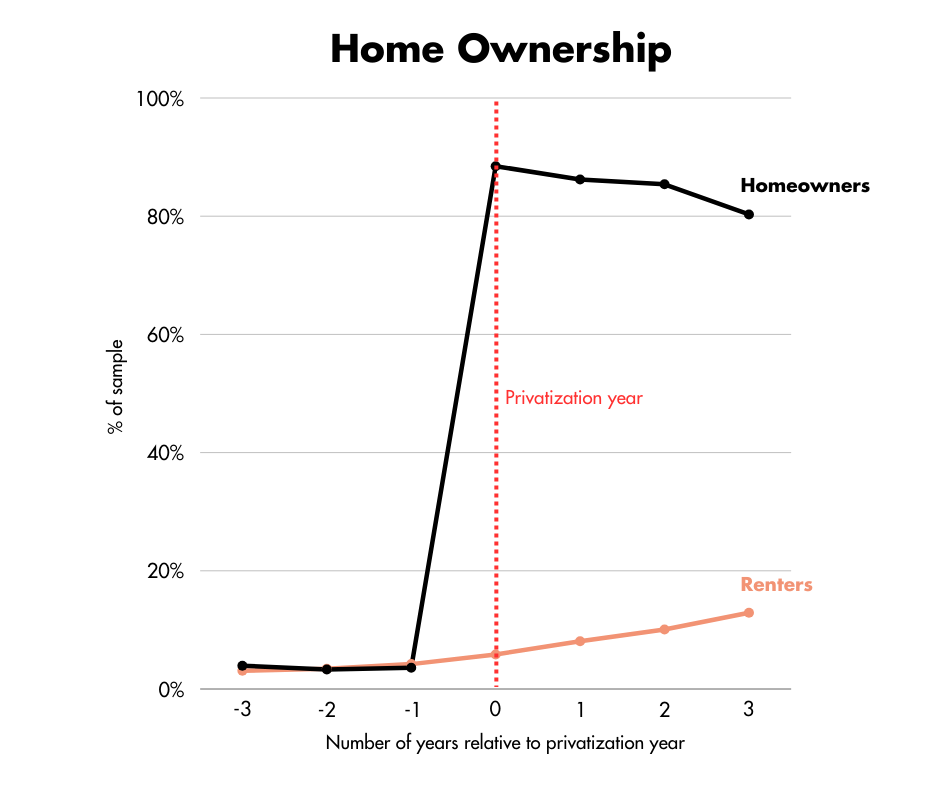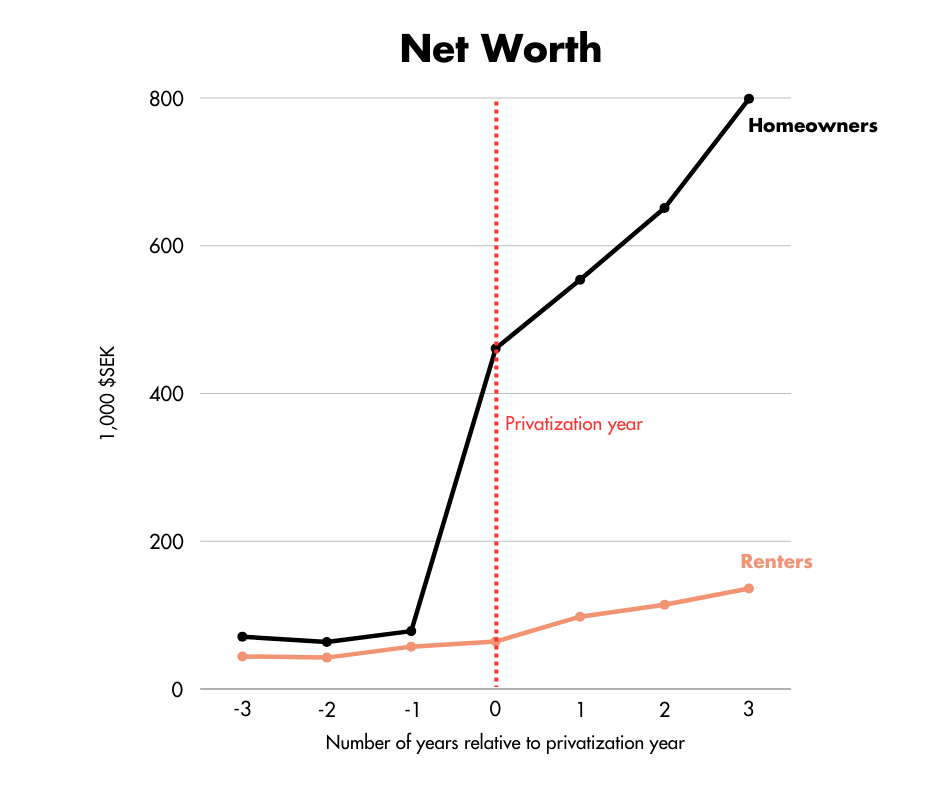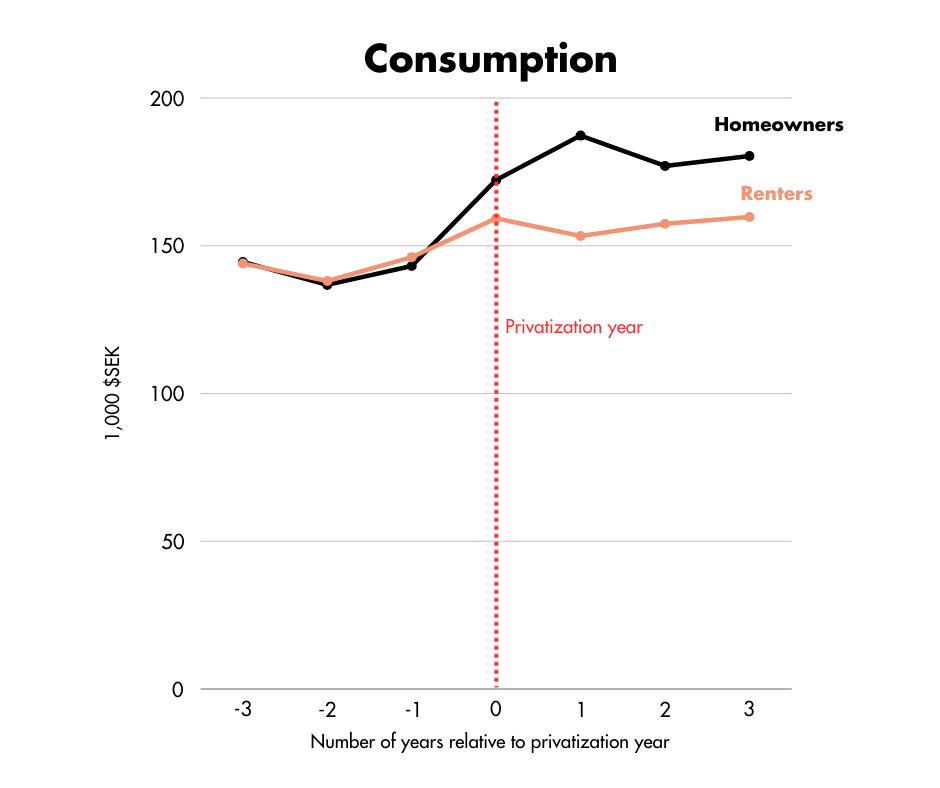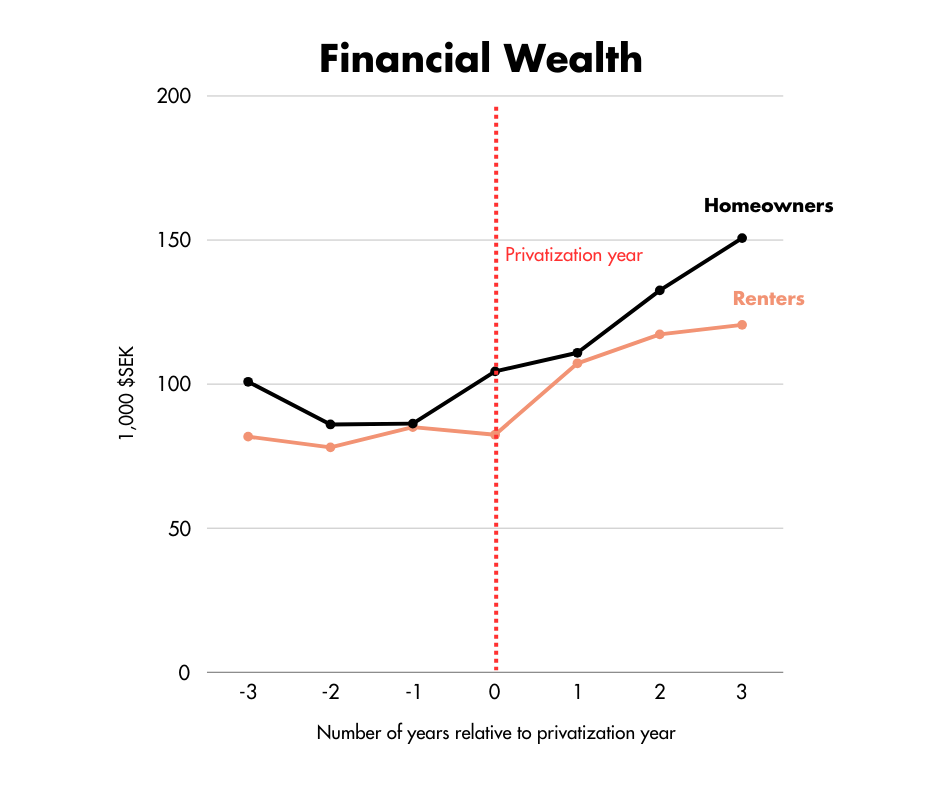Benefits of Homeownership: Insights from a Swedish Experiment
Jan. 30, 2024
A new study looks into a unique experiment in Sweden where renters were offered, then unexpectedly denied, the chance to buy their apartments. It offers a rare, data-driven glimpse into the true economic effects of owning a home, essential for informing future housing policies.

Countries worldwide are addressing housing policy and affordability amid high interest rates and inflation. A study by Swedish House of Finance’s Paolo Sodini (SSE) and Roine Vestman (Stockholm University), together with Ulf von Lilienfeld-Toal (University of Luxembourg) and Stijn Van Nieuwerburgh (Columbia University), reveals new insights into the benefits of homeownership. Overcoming previous research limitations through a Swedish quasi-experiment, the study shows that homeownership boosts consumption, increases mobility, and accelerates wealth.
The Swedish Homeownership Experiment

The study focuses on a unique episode in Stockholm, where a group of renters were initially allowed, but later unexpectedly denied the chance to buy their apartments. This random allocation of purchase opportunities among renters allowed the researchers to isolate the effects of owning a home and analyze the financial outcomes of transitioning from renting to owning.
The robustness of this study stems from its ability to overcome the classic challenge in housing research – the endogeneity issue, where inherent differences between homeowners and renters could skew results.
Utilizing data from administrative registries, the study tracked homeowners’ demographics, income, housing, financial wealth, and debt from 1999 to 2007, comparing them with those who continued to rent. The period of study spanned the time before and during the privatizations, and after program ended.
Homeownership resulted in wealth gains

The study found a significant increase in wealth accumulation among new homeowners. Driven largely by the appreciation in house prices, these individuals saw considerable growth in their personal assets, amplified by leveraging their properties. Homeownership not only served as a vehicle for wealth building but also as a means for financial leverage, providing homeowners a substantial advantage over renters.
Consumption behavior

Households transitioning to homeownership increased their annual consumption by about 30 thousand SEK per year in the four years after they started owning their homes, marking an 18.5% rise compared to their spending habits as renters.
The study found evidence for spending in home improvements, as did previous research, but it also found that home-improvement spending did not account for the bulk of the increase in household spending overall. This boost in consumption and decline in savings in financial assets (aside from the mortgage) underscores the financial confidence and stability that comes with owning a home.
It also found that homeowners were better equipped to manage their consumption in response to income changes, thanks to the ability to borrow against their housing equity.
“Homeowners were able to absorb the negative income shocks and maintain their pre-shock consumption levels by borrowing against their housing equity,” Sodini says. “Households that remained renters had to reduce consumption as much as the decline in income.”
Improved mobility
Homeowners are generally thought to be less mobile than renters. The study however found that younger households were more likely to move to neighborhoods with higher property values, facilitated by the capital gains from their initial home purchases.
This trend not only reflects the wealth-building aspect of homeownership but also its impact on urban demographics and neighborhood dynamics.
Riskier investment choices

Older homeowners displayed a tendency to allocate a larger portion of their financial assets into riskier investments. This shift in investment behavior among homeowners suggests a broader impact of property ownership on financial decision-making and risk tolerance.
The paper, "Identifying the Benefits from Homeownership: A Swedish Experiment” is published in the December issue of American Economic Review.
